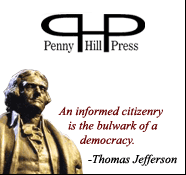Monday, November 5, 2012
Community Services Block Grants (CSBG): Background and Funding
Karen Spar
Specialist in Domestic Social Policy and Division Research Coordinator
Community Services Block Grants (CSBG) provide federal funds to states, territories, and tribes for distribution to local agencies to support a wide range of community-based activities to reduce poverty. Smaller related programs—Community Economic Development (CED), Rural Community Facilities (RCF), and Individual Development Accounts (IDAs)—also support antipoverty efforts. CSBG and some of these related activities trace their roots to the War on Poverty, launched in the 1960s. Today, they are administered at the federal level by the Department of Health and Human Services (HHS).
CSBG and related activities were funded in FY2012 under the Consolidated Appropriations Act (P.L. 112-74), at a combined level of $732 million. This included $677 million for CSBG, $30 million for CED (of which up to $10 million could be used for the Administration’s Healthy Food Financing Initiative), $5 million for RCF, and $20 million for IDAs. Currently, CSBG and related activities are funded through March 27, 2013, under a continuing resolution (P.L. 112-175) that maintains funding at FY2012 levels, plus an additional 0.612%
President Obama formally submitted his FY2013 budget to Congress in February, requesting a total of $400 million for CSBG and related activities. This marked a sharp drop in requested funding for the block grant from its FY2012 level of $677 million to $350 million in FY2013. Budget documents characterized this proposal as one of several “tough cuts to worthy programs” necessary to offset other spending increases in HHS. The Administration offered a similar request for FY2012, which Congress rejected. In the FY2012 budget, the Administration also signaled its intent to move CSBG toward a competitive program, in which states would award block grant funds among local agencies competitively, rather than via the current mandatory pass-through to “eligible entities.” The Administration’s FY2013 budget clarified this intent, explaining that HHS would work with Congress to develop “core” federal standards to measure local performance. If an existing eligible entity failed to meet the standards, the state would immediately conduct an open competition to replace that entity in serving the affected community.
The Senate Appropriations Committee on June 14 reported a FY2013 appropriations bill for HHS (S. 3295) that would maintain CSBG and most related activities at FY2012 levels, and would increase RCF by $1 million. The House Labor-HHS-Education Appropriations Subcommittee approved a FY2013 bill on July 17, but the full House Appropriations Committee has not acted. The draft bill would maintain funding at FY2012 levels for CSBG and most related activities; however, it would not allow any funds to be used for the Administration’s food initiative. Also, the funding level for IDAs cannot be determined from the language of the draft bill.
The National Association for State Community Services Programs conducts an annual survey of states on the activities and expenditures of the nationwide network of more than 1,000 CSBG grantees. According to the most recent survey, the network served almost 19 million people in almost 8 million low-income families in FY2011. States reported that the network spent $15.4 billion of federal, state, local, and private resources, including $630 million of regular federal CSBG funds and more than $10 billion from other federal programs.
The Community Services Block Grant Act was last reauthorized in 1998 by P.L. 105-285. The authorization of appropriations for CSBG and most related programs expired in FY2003, although Congress has continued to fund these programs through the annual appropriations process. No legislation to reauthorize CSBG has been introduced since the 109th Congress.
Date of Report: October 23, 2012
Number of Pages: 33
Order Number: RL32872
Price: $29.95
To Order:
RL32872.pdf to use the SECURE SHOPPING CART
e-mail congress@pennyhill.com
Phone 301-253-0881
For email and phone orders, provide a Visa, MasterCard, American Express, or Discover card number, expiration date, and name on the card. Indicate whether you want e-mail or postal delivery. Phone orders are preferred and receive priority processing.






